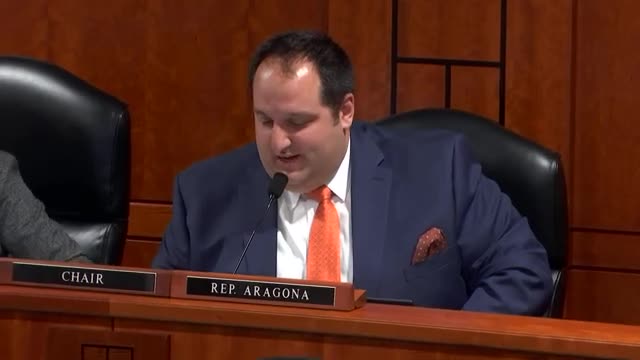Michigan Liquor Control Commission briefs committee on licensing, sales and revenue flows
Get AI-powered insights, summaries, and transcripts
Subscribe
Summary
Officials from the Michigan Liquor Control Commission described the agency's structure, licensing volumes, three-tier distribution, minimum pricing and where liquor profits are allocated in Michigan. Commissioners and staff discussed licensing types, application timing and recent policy changes to product listings.
Officials from the Michigan Liquor Control Commission (MLCC) briefed the House Committee on Regulatory Reform on Feb. 20 about agency operations, licensing volumes and how revenue from spirit sales is distributed.
The MLCC presentation outlined the agency's role, tracing the commission's origins to changes at the end of Prohibition and noting it now operates under the Michigan Constitution and the Michigan Liquor Control Code. MLCC staff described the three-tier distribution model (manufacturers, wholesalers and retailers) and said the state wholesales spirits while private retailers sell to consumers.
Agency officials provided these key figures for fiscal reporting and licensing work: the MLCC said it issues more than 110,000 licenses and permits annually (about 42,000 licenses and 68,000 permits at renewal), manages roughly 20,000 retail licensees, and processes roughly 9,000 one-day special licenses each year. The commission reported nearly $2 billion in annual spirit sales, an estimated 10.5 million cases and roughly 73 million bottles sold in the referenced year, and that the state maintains one of the largest selections of product SKUs in the country.
Staff explained how minimum shelf prices for spirits are calculated under statute to yield a specified return to the state (the commission described a statutory target of a 65% margin embedded in pricing rules) and that retailers purchase at a statutory discount (the MLCC cited a 17% retailer discount set in statute, with temporary adjustments during the COVID emergency). Officials also described how net proceeds are distributed by statute and appropriation: the presentation included estimated fiscal-year allocations (the commission presented an estimated $410 million flowing to the general fund and a larger aggregate of roughly $600 million in net returns available for statutory allocations and appropriations in the referenced fiscal year). The presentation listed other statutory or formula-driven shares that go to the convention facilities fund, school aid, local governments and other designated recipients.
MLCC representatives identified agency staff who conduct licensing, enforcement and executive services work and outlined basic timelines: MLCC licensing staff said a complete new-license application often takes about 60 to 90 days depending on documentation and investigative time. The commission also noted operational volume for authorized distribution agents (ADAs) that pick and deliver cases to retailers and described inventory and delivery activity.
Committee members asked about how a new license is obtained, constraints when local license caps exist, and product-trend questions such as the impact of nonalcoholic "mocktail" products; MLCC staff said they do not track mocktails separately but that nonalcoholic spirit substitutes are available from suppliers.
No committee action or vote on MLCC policy resulted from the presentation; MLCC staff said they remain available to assist legislators and constituents.
